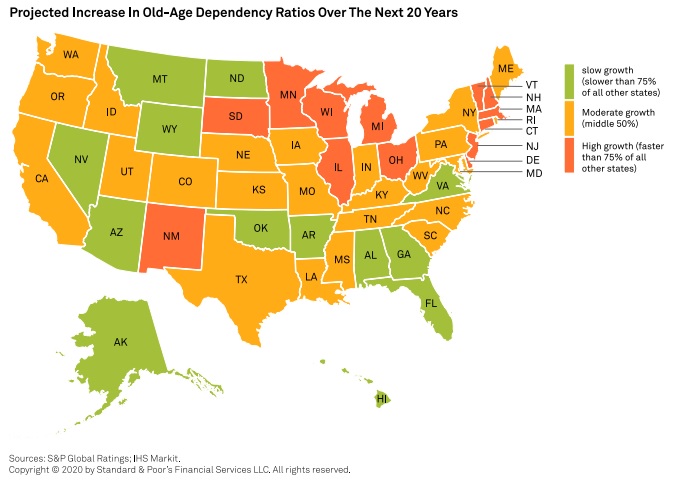You have /5 articles left.
Sign up for a free account or log in.
The aging U.S. population poses long-term social risks to the fiscal stability of states, according to a new report from S&P Global Ratings, a ratings firm.
For the first time in U.S. history, the number of Americans who are age 65 and over will outnumber those under 18 by 2035, the U.S. Census projects. And this shift will exacerbate generational dependency, the report said, which will create economic, fiscal and social challenges for state governments. (This, in turn, could impact public colleges' state support.)
"As the baby boomer generation retires, the older generation's dependency on younger ones is projected to significantly increase over the next 30 years," according to S&P.
The impacts of an aging population will vary across different regions. For example, state budgets in the Northeast likely will be strained by increased Medicaid costs, the report found, while outmigration and aging in place is projected to limit the Midwest's economic growth and state spending. The South has benefited from an influx of working-age adults, according to the report, but continued economic diversification will be crucial. And housing affordability challenges will persist in the West and could be exacerbated by continued aging.









